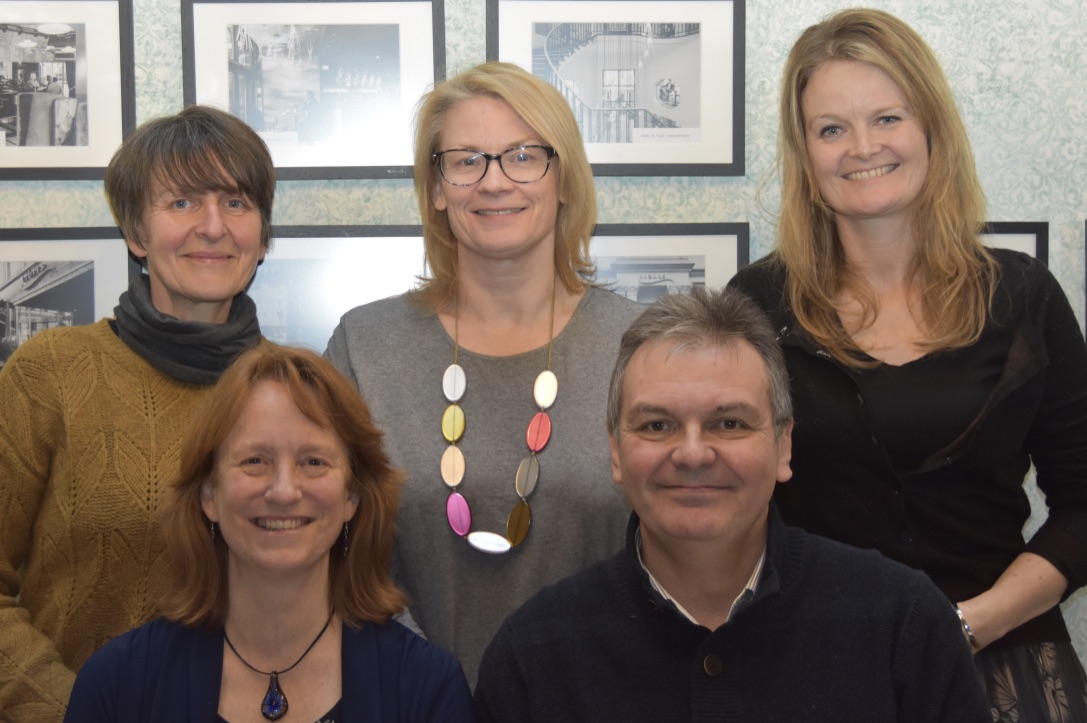Home » About Us
About Us

Pandora Pound, Jan Turner, Rebecca Ram (left to right top row) and Kathy Archibald, Gerry Kenna (bottom row)
Our Vision
Our vision is that scientifically valid, human-focused research will deliver safe and effective treatments for patients
Our Mission
Our mission is to make medicines safer by facilitating a transition to human-focused drug development and testing
Our Objectives
- To promote the use of scientifically valid human-relevant methods and technologies for the development of safe and effective medicines
- To undertake activities to support the evaluation of human-relevant methods
- To promote regulatory acceptance and prioritisation of suitable methods
WHO we are
Safer Medicines Trust is a patient safety charity whose mission is to change the way medicines are tested, to a system based on human biology: the only way to ensure safety for patients. Our scientists have extensive expertise in drug discovery and development. We have hosted international conferences at the Royal Society and the House of Lords, showing the benefits to drug safety and medical progress offered by a focus on human, rather than animal biology. We are a founder member of the Alliance for Human Relevant Science
Safer Medicines Campaign exists to challenge the regulations that still require animal-based safety tests when superior methods exist.
Meet our team
WHAT we do
Spreading the word to Scientists
Informing regulators & politicians
Public Education
WHAT we are calling for
- Increased funding of NAMs by diverting resources away from animal-based approaches and towards NAMs
- A more robust application of the harm-benefit analysis by the Home Office, including a strong requirement for evidence that the use of NAMs has been thoroughly considered in applications to conduct animal research
- An aspiration for animal free science to be reintroduced into UK legislation
- A review of the current regulatory guidelines for animal research and pharmaceutical testing, with a view to updating these such that NAMs are recommended where appropriate in research and in the licensing of medicines
- The creation of a dedicated ministerial position to lead a transition to NAMs with appropriate milestones, timelines, funding, and deliverables
- The development of a UK Transition Programme for Innovation without animals (similar to the Dutch TPI programme), to prioritise awareness of NAMs and to incentivise collaboration between stakeholders
- A robust evaluation of preclinical research for its clinical relevance, with funds allocated accordingly
WHY we are calling for it
There is alarming evidence that animal tests fail to protect us:
- Six healthy young men nearly died in a Phase 1 clinical trial of a drug which was found to be safe in animals
- In France another drug killed one man and caused severe neurological symptoms in five others, again in a Phase 1 trial following extensive testing in rats, mice, dogs and monkeys
- Although it is more difficult to detect adverse drug reactions in Phase II and III clinical trials (as the participants are already unwell), there are many examples in which drugs judged safe and effective in a range of animal species have gone on to cause excess deaths in humans, e.g. Phase III trials of Tirilazad for stroke, corticosteroids for brain injury
- It is estimated that up to 95% of new drug candidates fail to translate into effective treatments for humans despite having appeared safe and effective in animal studies
- Even drugs that have been declared safe after clinical trials can go on to harm people in the general population. The arthritis drug Vioxx killed up to 111,000* people after appearing to be safe in animals, including monkeys
- Extensive studies of animal tests’ ability to predict drugs’ and chemicals’ potential to cause cancer and birth defects have found them to be ineffective
- Animal studies are unable to reliably and consistently predict human responses. Cancer Research UK acknowledges: ‘We do trials in people because animal models do not predict what will happen in humans’. See more expert opinions here
- The failure of researchers to conduct and report their animal studies according to agreed scientific standards – failures which invalidate the results of their studies – are increasingly recognised
- Adverse drug reactions kill 197,000 people in the EU every year and 128,000 in the US. The time for action is NOW!
NB: We are aware that there are many issues affecting the safety of medicines, including poorly designed clinical trials, under-reporting of adverse drug reactions in clinical trials, poor pharmacovigilance and medication errors. However, whilst we acknowledge these are each highly important in their own right, our focus is on the need for human-relevant preclinical research, in order to improve the safety of medicines before they ever reach the stage of first-in-human testing, i.e. to protect research volunteers as well as patients and consumers.
* It is very difficult to estimate the number of deaths caused by Vioxx. Dr David Graham (FDA) calculated that Vioxx caused 88,000-139,000 heart attacks in the USA alone, approximately 30-40% of which were fatal (https://www.whistleblower.org/dr-david-grahams-full-story). This means that up to 55,600 people may have died as a result of Vioxx in the USA. Worldwide, twice as many people were exposed to Vioxx as in the USA alone, meaning that as many as 111,000 people may have died as a result of Vioxx. However, the figure could be much higher.
